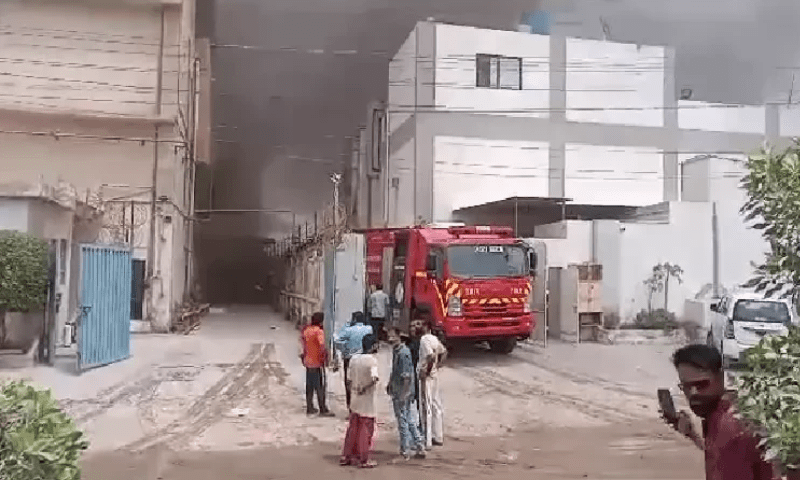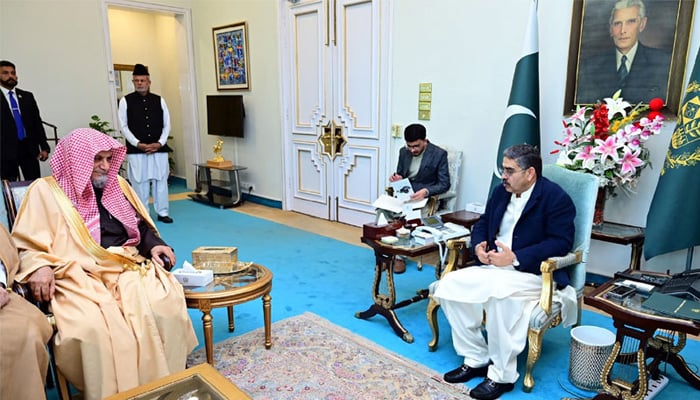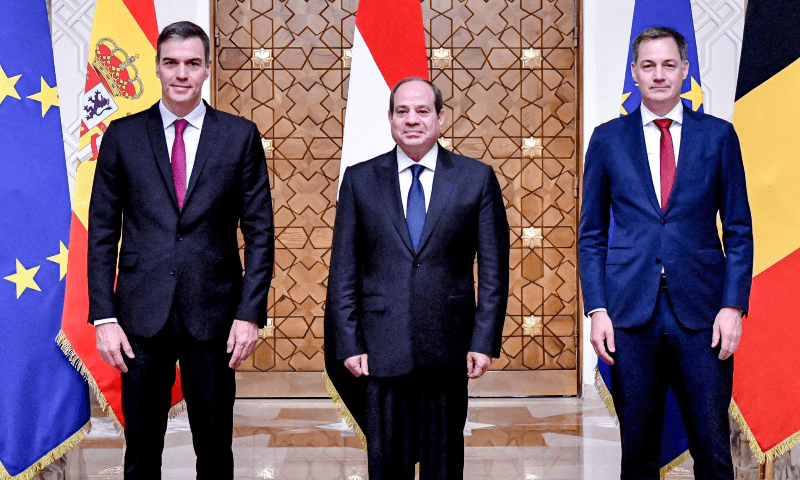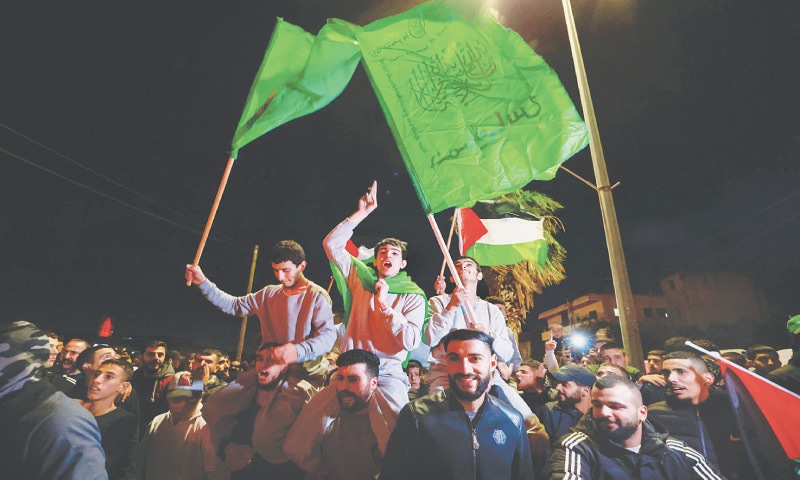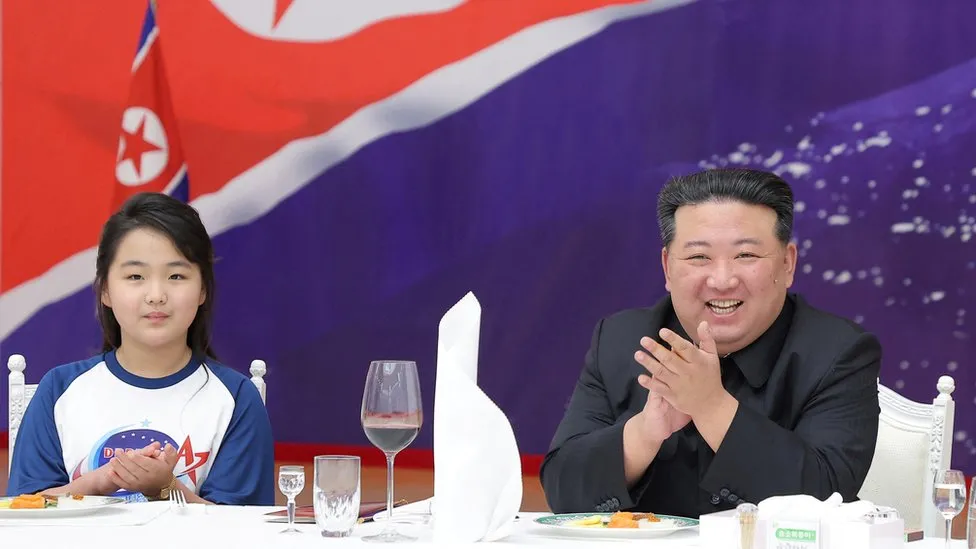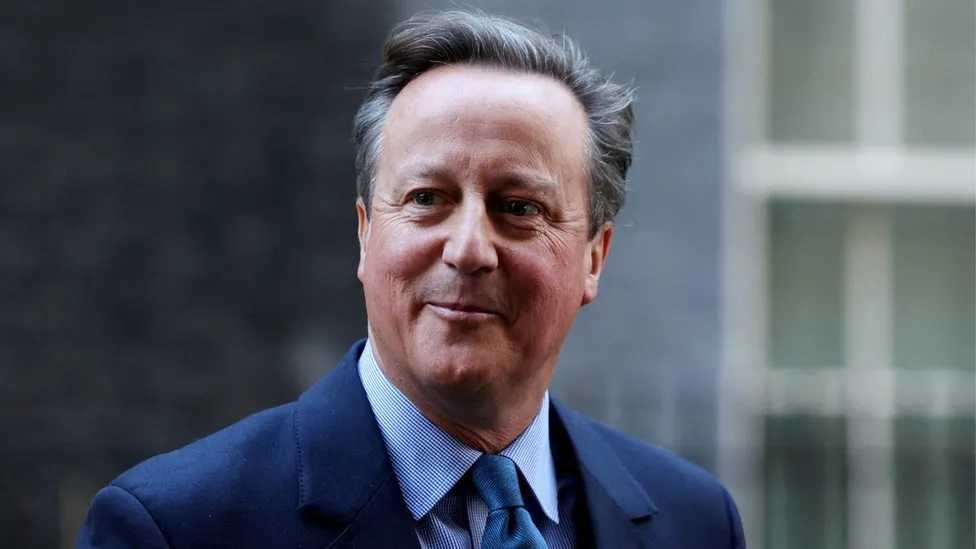KARACHI: Eleven people have died after a huge fire erupted in a multi-storey shopping mall on Karachi’s Rashid Minhas Road on Saturday.
Karachi Mayor Murtaza Wahab has confirmed the number of casualties taking to his X, formerly Twitter, account.
“KMC Fire Department has so far confirmed that there have been 9 casualties in the fire incident,” he wrote, further informing about the number of bodies shifted to different hospitals in the city.
“Search process still continues,” he added in the post.
According to fire brigade officials, nearly 50 people trapped inside the RJ shopping mall on the city’s busy artery have been rescued in the rescue operation involving two snorkels, eight fire tenders and a bowser.
A spokesperson for the Jinnah Postgraduate Medical Center (JPMC) said they received nine bodies, while a rescue official said one body each was shifted to the Civil Hospital and Abbasi Shaheed Hospital.
Officials said that more people are still there and efforts are being made to bring them to safety. The officials added that fire at the shopping centre has been brought under control, while the cooling process is currently underway on one of the floors.
The fire that broke out at around 7am on the second floor engulfed the fourth, fifth and sixth floors of the shopping mall, but it was not clear what caused it.
The injured have been shifted to a nearby healthcare facility for treatment. Six of those injured are in critical condition, officials said.
Rauf Hamid, who was rescued from the building, told Geo News many people are still trapped.
“When the fire broke out, we saved ourselves by rushing towards a safe room. The smoke was so intense that we didn’t understand what was happening.”
CM Baqar takes notice
Sindh Caretaker Chief Minister Justice (retd) Maqbool Baqar has expressed regret over the loss of life in the wake of the deadly fire.
The chief minister has ordered urgent measures to control the fire and has asked for the injured to be provided immediate medical aid.
Action to be taken against those responsible: DC
Karachi Deputy Commissioner (DC) Salim Rajput visited the site and ordered an inquiry into the incident.
“The buildings lacking security arrangements will be sealed. From tomorrow, all the deputy commissioners will collect data on buildings in their areas,” he said, ordering for action to be taken after the collection of records within 30 days.
“Legal action will be taken against those responsible,” he added.
Chief Fire Officer Mubeen Ahmed said the mall’s building has caught fire for the second time. “Two years ago there was a fire in the same building.”
He added that when a fire breaks out in such a building, cutting off the power leads to darkness and people usually panic in such a situation due to which chaos ensues.
“After completion of the rescue operation, it will be known whether fire safety equipment was present or not,” he said, adding that the process of search and rescue is underway inside the mall’s building after the cooling process is completed.
‘No fire extinguishing system’
Karachi Fire Rescue Commander Humayun Khan said the fire was probably caused by a short circuit.
“The shopping centre did not have a fire extinguishing system. Being centrally air-conditioned, there was no way for the air to escape,” he added.
Call centres in the shopping centre, he said, are operational 24 hours a day. “We were successful in rescuing 50 people.”
The Sindh Building Control Authority (SCBA) officials visited the shopping mall affected by the fire.
“The affected shopping centre falls under the jurisdiction of the Faisal Cantonment Board. Its map has not been approved by the Sindh Building Control Authority,” the SCBA official said.
Bilawal aggrieved over loss of lives
Meanwhile, Pakistan Peoples Party (PPP) Chairman Bilawal Bhutto-Zardari has expressed regret over the fire incident, grieving the loss of precious lives.
The former federal minister has asked to ensure better treatment of injured people. He has also demanded that an immediate investigation be conducted to ensure the prevention of such incidents in the future.


